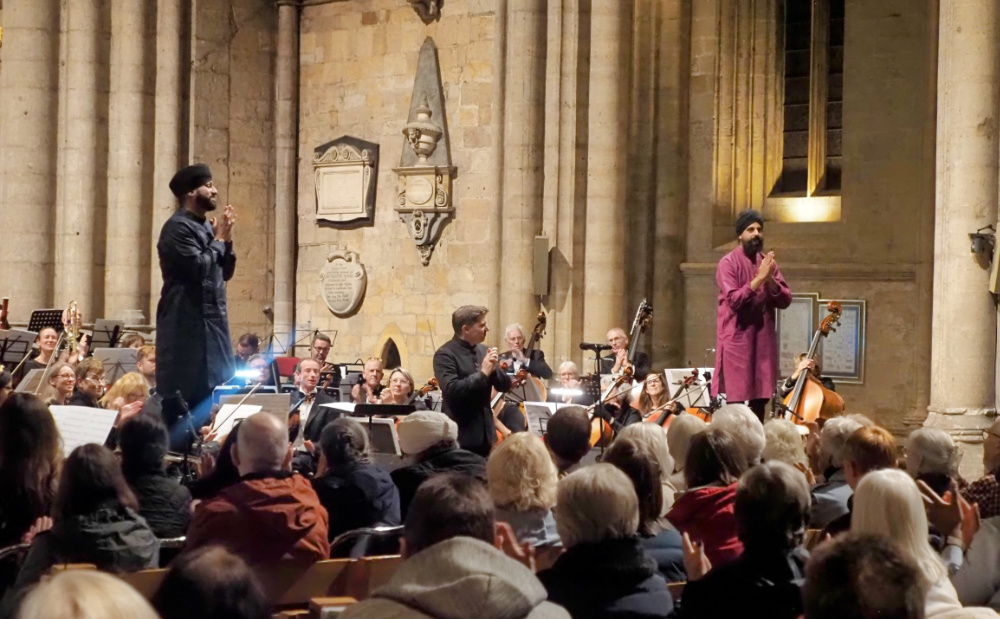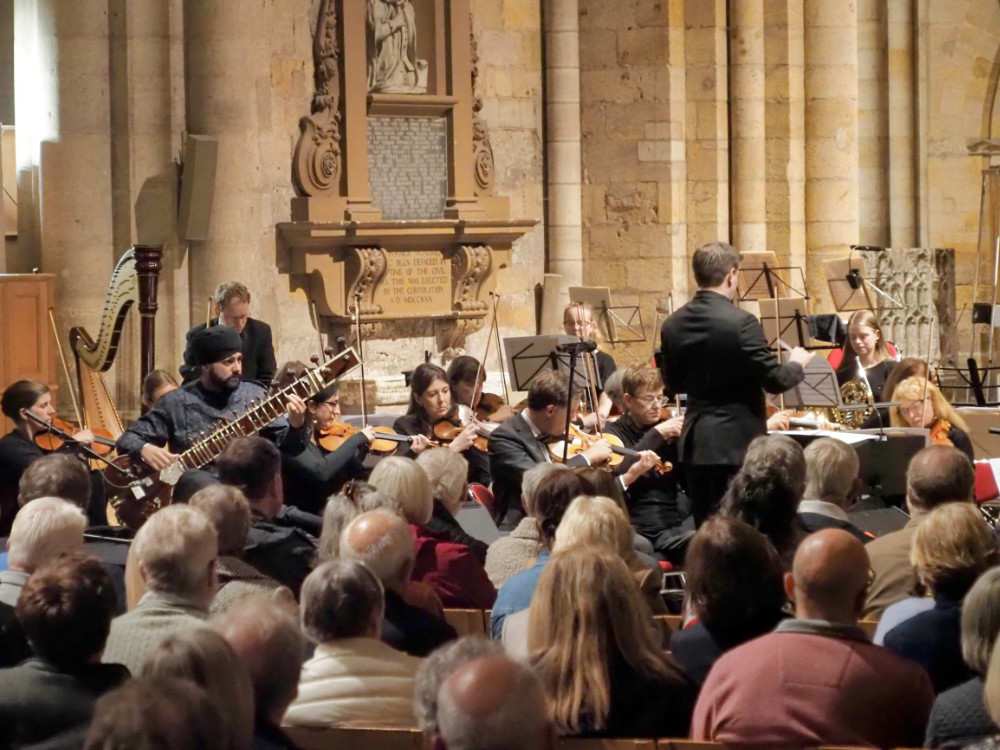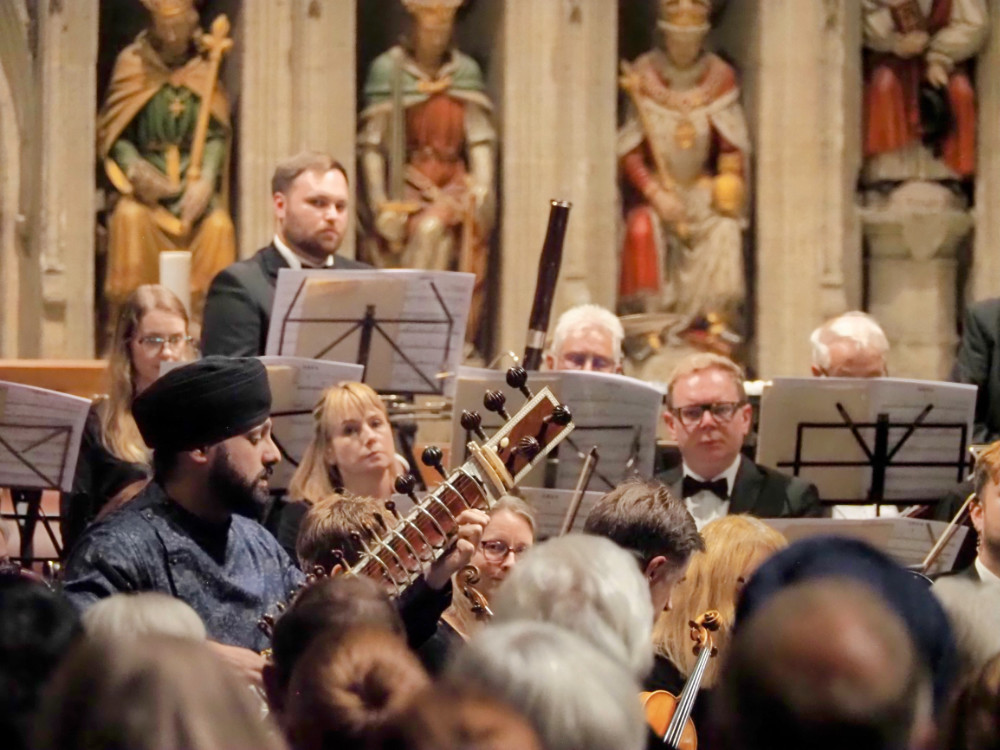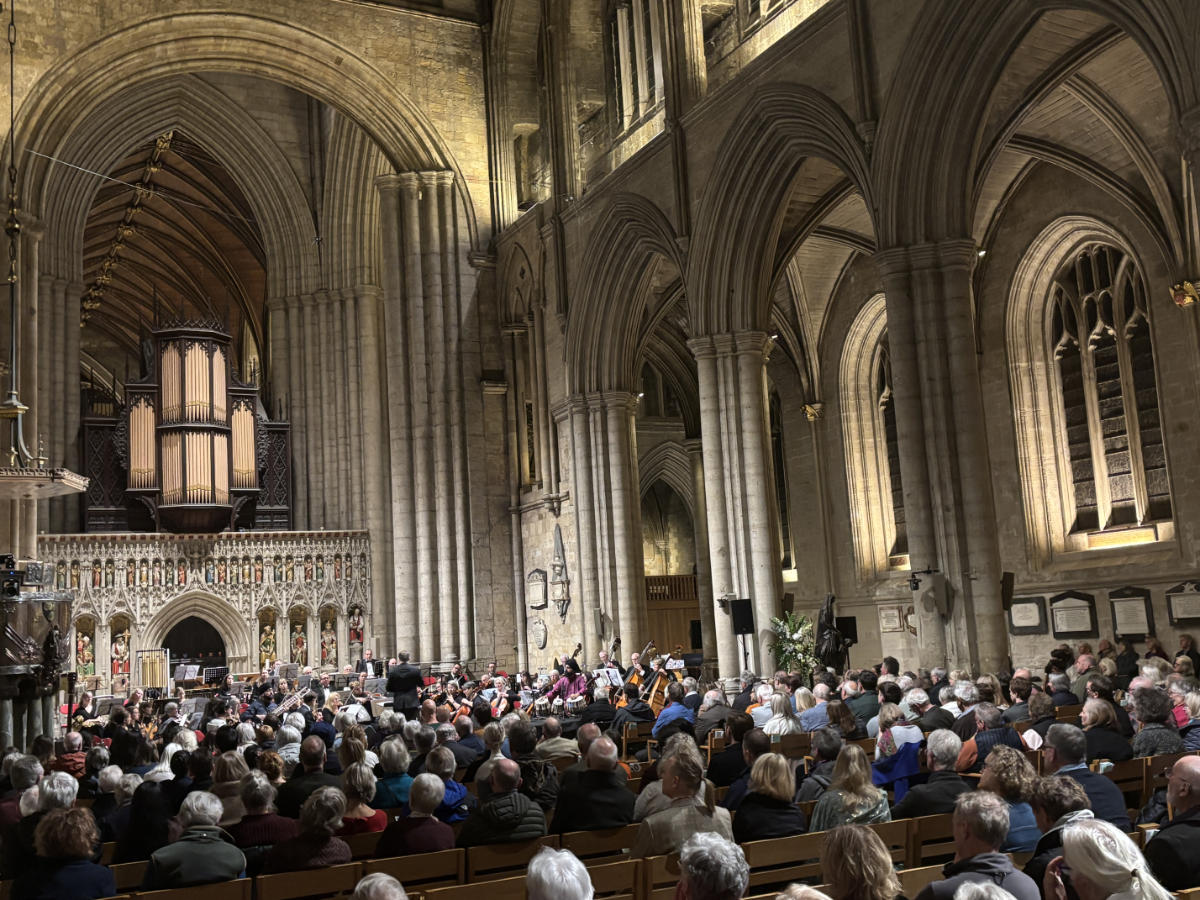- Saturday 27 September 2025
Music, it is said, can unite people; St Cecilia Orchestra’s Gala Concert on Saturday 27th September was ample proof of the maxim. Celebrating 30 years of music making by the orchestra with its principle conductor, Xen Kelsey, it was held in the magnificent setting of Ripon Cathedral (an appropriate venue with a tradition of hospitality and welcome to people of all faiths and none).
The concert opened with Arya, a concerto for sitar with tabla and orchestra, by Jasdeep Singh Degun. This substantial work (some 45 minutes long) was structured after the manner of a Romantic concerto: three movements in which the virtuosic solo sitar, played by the composer, was pitted against the orchestra and superb tabla playing of Gurdain Rayatt. The audience was rapt as this complex music unfolded with exotic instruments, rich, sonorous textures and colourful orchestrations (bowed glockenspiel and delicate violin harmonics), and with big, somewhat cinematic tunes. The nave of Ripon Cathedral can be a challenging acoustic for orchestras, but guest conductor Gary Matthewman maintained crystal clarity of sound and perfect balance between orchestra and soloist. In the tradition of Indian classical music the solo sitar was improvisatory in style. Each movement was based on a different raag (traditional Indian scale pattern) which, whilst creating additional musical interest, necessitated retuning of the sitar between movements (a lengthy procedure which somewhat disturbed the flow of the work). Nonetheless, the musical journey was a thrilling one inspiring rapturous applause from the delighted audience.


Lament for sitar, tabla and strings by Jasdeep Singh Degun is an arrangement of the lament for Eurydice from his 2022 opera, Orpheus. As with the final movement of Arya the sitar played a quasi improvisatory solo over an ostinato harmonic pattern. Colourfully orchestrated, the many interesting effects, subtle tabla rhythms, melancholy melody and harmony combined to create a deeply tragic mood. For me, despite Arya’s brilliance and undoubted craftsmanship, Lament was the most musically successful of the two works, fully achieving its goal: a true synthesis of a European (Baroque) form with Indian Classical melodic and rhythmic patterns.

The second half of the programme featured one work, Scheherazade by Rimsky Korsakov. This monumental Symphonic Suite in four movements is something of a concerto for orchestra, calling for extraordinary virtuosity from the leaders of all the orchestral sections. The rhapsodic forms and colourful orchestrations subtly reflect the exoticism of the tales in 1001 Nights on which the work is loosely based. Once again, the spaciousness of this music lent itself admirably to the acoustic, and Gary Matthewman achieved the remarkable balancing act of letting the music seem to flow freely from gentle meanderings to wild, frenzied dances, whilst always in fact keeping the orchestra tightly together. The exquisite solo work was matched throughout by delicious orchestral sonorities. As the final violin solo melted away over a glistening pianissimo woodwind chord this gala concert came to a calm, yet triumphant close.
Tim Harrison







Did you record the concert, Xen? I would have loved to have been there! 🩷💖🥰.
If so, may I buy a copy ( and maybe some extra ones for Christmas presents? )
Xxx